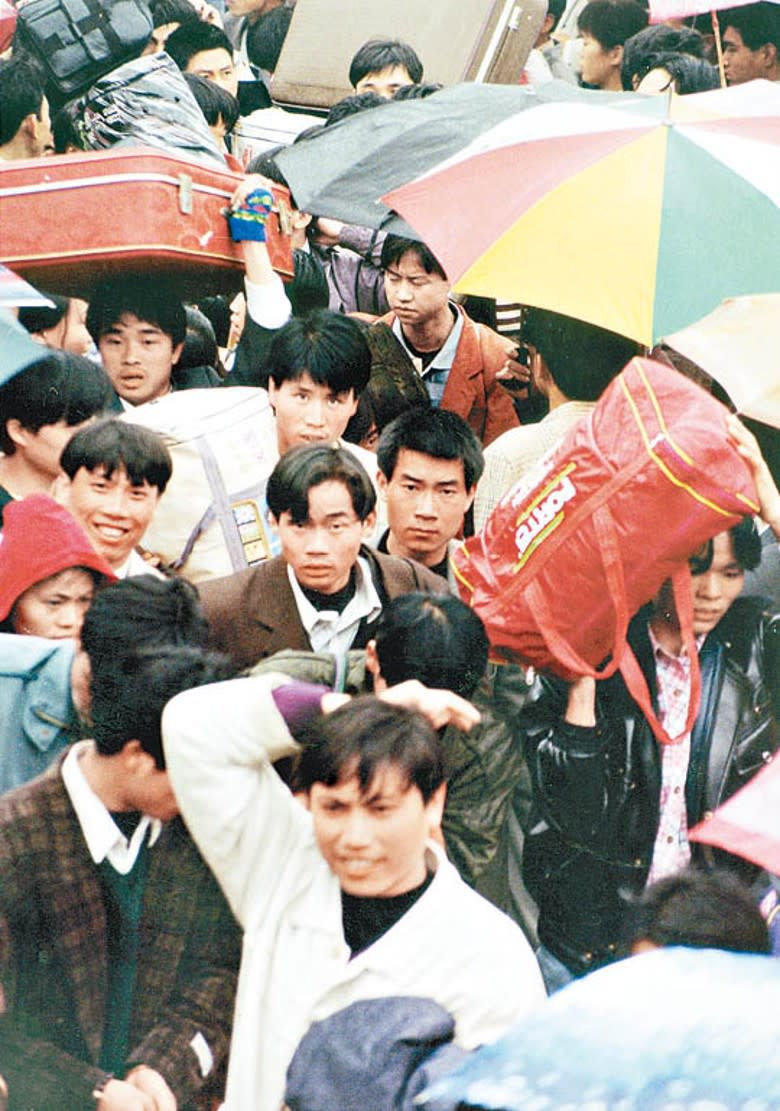During Jiang Zemin’s democratic administration, the mainland was full of luxury and prosperity, song and dance, and China also became an attractive economic powerhouse. However, there are many abuses in politics and people’s livelihoods, including serious corruption in officialdom, “smooth and rich”, official positions are reduced to commodity trading, and the social gap between rich and poor is widening.
Confidant Zhou Yongkang and Bo Xilai plan a coup
During Jiang Zemin’s democratic administration, official corruption was accused of having outgrown any period since the founding of the CCP, and the ranks of officials who were removed from power due to corruption were getting higher and higher, including former Politburo member Chen Xitong, former National People’s Congress Vice Chairman Cheng Kejie and other party members and national leaders. In 2004 alone, 10 provincial and ministerial officials across the country were investigated and prosecuted for accepting bribes. The Xiamen Yuanhua Group smuggling case that shocked China and the world involved central and local party officials, government and military systems. Corruption permeates every area of society, even the medical and health sector whose mission is to “save lives and heal the injured” is not immune to it.
Corruption was rampant in the official circles then. According to foreign media reports, government positions in the mainland started with 30 million yuan (RMB‧ the same below, about 33.54 million Hong Kong dollars). Chaos of all the types. After Jiang retired, most of the officials he promoted were criticized, corruption problems were uncovered one by one, Politburo member Guo Boxiong and others were investigated and convicted.
The maintenance of stability comes first, the reform of the political system stalls
After Jiang Zemin stepped down from his post at the 16th National Congress of the Communist Party of China in 2002, he remained the chairman of the Military Commission for two years under the pretext of “helping” him, setting a bad example of the abnormal transfer of power in the CCP . Even after relinquishing his military power, he still wasn’t willing to stand alone: whenever there was an important personnel change, he showed up at the right time to demonstrate his political clout. Furthermore, he has also planted a large number of cronies in the military and political system, causing disasters for several governments. Overseas media revealed that Jiang’s confidant Zhou Yongkang and former Chongqing party secretary Bo Xilai had tried to launch a palace coup to seize power.
In addition, Jiang Zemin has regarded “stability above all else” as his highest tenet for many years, and is not soft on people or things that may endanger stability. To maintain stability, the reform of the political system has basically stalled. The authorities also stepped up their scrutiny over public opinion, promptly eliminating internal and external party noise calling for political reform. In terms of diplomacy, Jiang Zemin did not achieve significant results: his visits to Japan in 1992 and 1998 did not achieve the expected results and he failed to get Japan to apologize for the damage done to China during the war . On the issue of the great cause of reunification, Jiang Zemin fell into a passive position in Taiwan’s work and opposed Taiwan’s military exercises to ramp up Taiwan independence.
The gap between rich and poor has been widening for many years
The disparity between rich and poor has continued to widen under Jiang Zemin’s democratic administration. With rapid economic development, wealth is concentrated in the hands of a few people who get rich first. However, many people’s lives are still difficult: in 2002 the urban poor numbered 37 million, equal to 12% of the total urban population. In addition, a large-scale reform of state-owned enterprises was carried out during the Jiang Zemin era, and a large number of workers lost their jobs in the process. In 2002, the official number of unemployed reached 8 million, and the actual number of unemployed is estimated at 14 million, most of these unemployed have joined the ranks of the poor.
However, Jiang Zemin has given some explanations in terms of economic development: since he came to power in 1989 after the June 4 Incident, he resigned from all posts in 2005. In 16 years, China has become a economic. also increased from over US$50 billion in 1989. billion (about HK$39 billion), rising sharply to over US$800 billion (about HK$6.24 trillion) in 2005. During this period, Jiang Zemin took or experienced a series of decisions or events that established its historic status, including witnessing the return of Hong Kong and Macao, the “Eight Points of Jiang” speech in Taiwan, the thought of the “Three Representatives” and “Unit Russia to make strategy diplomacy of America, etc. Full report of this newspaper



(Getty Images)


